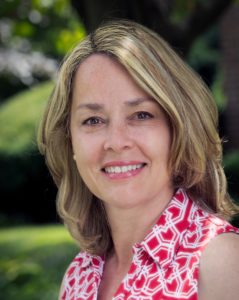Contracting Professionals revisited
2007 Contracting Professional of the Year is always up for a good challenge
Editor’s note: Where do JHC’s past Contracting Professionals of the Year go? Up. We are checking in with the people we’ve recognized since 2007, starting with our first Contracting Professional of the Year – Chris Meyers Janda.
Eleven years after being named JHC’s first Contracting Professional of the Year, Chris Meyers Janda still takes joy in learning, and in helping others do the same. And, as far as she’s concerned, there’s always something to learn in healthcare delivery.
Meyers Janda is vice president, Central Region, for Premier. Eleven years ago, she was vice president of supply chain at Fairview Health Services in Minneapolis.
Prior to joining Fairview in 2002, she was the supply chain director at Allina Health. She transitioned from Fairview supply chain in 2008, and became vice president of perioperative services at the University of Minnesota Medical Center and Amplatz Children’s Hospital, part of the Fairview system. She joined Premier in 2014.
“In my current role, I work with health system executives to address the challenges they face as they transform into high-quality, cost-effective organizations, leveraging our capabilities in cost management, quality, integrated pharmacy and value-based care,” she says. “Working with health system executives, I’m driven to understand their key strategic priorities and the problems they’re trying to solve, and then align our expertise and solutions to assist them in closing the gaps.
“As I’ve made career decisions over the years, I’ve been thoughtful and pursued opportunities based on the difference I can make, and the potential value for patients, providers and the organization. I like a good challenge and my leadership experiences have provided that to me, especially the work I’ve done in perioperative services.”
Perioperative services has also been her window into supply chain and healthcare administration.
“We create the most durable solutions for our patients and providers when we’ve either been a patient or walked in the experience of the patient,” she says. “There is no better way to gain the understanding and level of compassion needed to thrive in healthcare than to work in a clinical setting. I still encourage those I mentor to seek these experiences during their career.”
Continuous improvement
For years, Meyers Janda has been a student of continuous quality improvement. While at Fairview, she earned a Green Belt in quality through the Juran Center at the University of Minnesota. She maintains an interest in continuous improvement today, but with a twist.
“My commitment to solving problems within a process improvement framework has not changed, and I continue to apply that today,” she says. “With that said, I’ve become more aware that those with whom you work, and their level of passion in solving important problems, make all the difference in being able to achieve excellence.
“My thinking around the role that culture, conflict and change play in our healthcare journey has matured as well. While ‘all work is a process,’ you have to effectively manage the transition and address the people challenges with as much intent as the process change itself.
“Maybe I always took that into consideration without even knowing it,” she says. “With ever increasing complexity in our environment today, it’s essential for us to be in tune with both the pace and magnitude of change, and its impact on people. Sometimes I’m not sure if we’re well-equipped to deal with this magnitude of change demanded of us. So, paying attention to the people side of the equation is critical.
“I’ve found that when I haven’t done that, things don’t always stick.”
Meyers Janda believes that over the years, she has grown to better understand herself and the difference she wants to make in the world. “I’m also able to more effectively assess a situation to determine potential courses of action. Of course, as a parent of two young adults, and after 20 years of marriage, my family is my rock and their support and unconditional love grounds me personally.”
Supply chain and the future
She continues to believe that supply chain is an important component of the healthcare system. “I mentor graduate students at the University of Minnesota Master in Healthcare Administration Program and actively help them determine where their skills and interests reside. Supply chain is always one of my suggestions to them. Given the complexity of healthcare, we need varied and fresh talent pursuing this field as we make our transition to value-based care, which requires new ways of thinking about supply chain’s role in driving excellent patient outcomes.”
And she believes that in order to be effective, supply chain professionals need to stay plugged into the clinical side of the house. “Gain experience in a clinical setting and enterprise analytics,” she advises those early in their careers. Further, she encourages supply chain professionals to study the transition to value-based care, as they will play a pivotal role in assisting providers and their organizations through this transition.
Meanwhile, she’s going to keep learning. And there’s plenty of that to do.
For example, at press time, she was helping a client with a Medicare accountable care organization gather enterprise data on its ACO population. “We’re helping them ask and answer some big questions about that population,” she says. “We’re asking questions like, ‘How well is their care being managed?’ ‘Of their attributed lives, who is seeking care elsewhere?’
“Then it’s a matter of stepping back, asking what’s been learned, and determining what’s next. For me, the greatest success is achieved when working as a team to solve problems together, maximizing the varied expertise that everyone brings to the table.
“In this part of my journey, I’m doing all I can to learn about value-based care and reduction of unwarranted clinical and non-clinical variation, in hopes of driving as much value as possible for the health systems I serve.”

